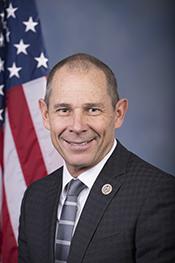S. 1507: Agriculture Resilience Act of 2025
The Agriculture Resilience Act of 2025 aims to combat climate change effects on agriculture by implementing various measures focused on greenhouse gas reductions, sustainable agricultural practices, and food waste reduction. Here are the main components of the bill:
Funding for Agricultural Resilience
The bill allocates $50 million annually starting in 2026 for initiatives related to food and agricultural resilience. Additionally, it provides for discretionary funding of $20 million through 2030, aimed at enhancing research and development essential for climate adaptation and sustainable practices.
Amendments to Existing Legislation
The Agriculture Resilience Act amends the Food Security Act of 1985, enhancing its focus on climate change. This includes goals for reducing greenhouse gas emissions, promoting carbon sequestration, and adapting farming practices to be more resilient. It also updates funding allocations and payment structures to better support conservation practices.
Budget Allocation
The bill establishes a substantial budget of $700 million annually from 2026 to 2033. This includes:
- $3 billion dedicated to climate assistance initiatives
- $4 billion for related agricultural programs
- Technical support decisions prioritized for underserved farmers
Support for Agroforestry and Sustainability
Provisions in the bill emphasize support for agroforestry, improving conservation practices, and funding grant programs. The focus is on enhancing soil health, encouraging carbon sequestration, and adopting sustainable farming practices while reducing the conversion of farmland to non-agricultural uses.
Conservation Stewardship Program Compliance
Land enrolled in the Conservation Stewardship Program must adhere to its terms, as set by the Secretary of Agriculture. The bill ensures that funding for these lands is distinct from other costs and allows landowners to opt into enrollment within three years of receiving easement grants.
Prioritization of Carbon-Sequestering Practices
The legislation prioritizes funding contracts that promote practices enhancing carbon sequestration, reducing greenhouse gas emissions, and improving overall environmental health. This is particularly targeted at dairy and livestock operations in or near underserved communities. The bill aims to streamline funding access for small and mid-sized farms to adopt better management practices.
Food Labeling and Waste Reduction
Changes to food labeling regulations will require compliance with new quality and discard date standards introduced by the Agriculture Resilience Act. Moreover, the bill establishes a grant program specifically for composting and anaerobic digestion projects. It mandates nationwide efforts to reduce food waste, complemented by educational initiatives to enhance public awareness about food waste reduction.
Relevant Companies
- TSN (Tyson Foods) - As a major player in the agricultural sector, Tyson may be affected by new regulations on emissions and sustainability practices.
- DE (Deere & Company) - As a manufacturer of agricultural equipment, Deere may see changes in demand for more sustainable farming technology as a result of the bill.
- BG (Bunge Limited) - Bunge, involved in food processing and agribusiness, could be impacted by increased focus on food waste reduction and sustainable practices.
This is an AI-generated summary of the bill text. There may be mistakes.
Sponsors
12 bill sponsors
-
TrackMartin Heinrich

Sponsor
-
TrackRichard Blumenthal

Co-Sponsor
-
TrackCory A. Booker

Co-Sponsor
-
TrackJohn Fetterman

Co-Sponsor
-
TrackKirsten E. Gillibrand

Co-Sponsor
-
TrackEdward J. Markey

Co-Sponsor
-
TrackJeff Merkley

Co-Sponsor
-
TrackChristopher Murphy

Co-Sponsor
-
TrackBernard Sanders

Co-Sponsor
-
TrackAdam B. Schiff

Co-Sponsor
-
TrackTina Smith

Co-Sponsor
-
TrackPeter Welch

Co-Sponsor
Actions
2 actions
| Date | Action |
|---|---|
| Apr. 29, 2025 | Introduced in Senate |
| Apr. 29, 2025 | Read twice and referred to the Committee on Agriculture, Nutrition, and Forestry. |
Corporate Lobbying
0 companies lobbying
None found.
* Note that there can be significant delays in lobbying disclosures, and our data may be incomplete.














